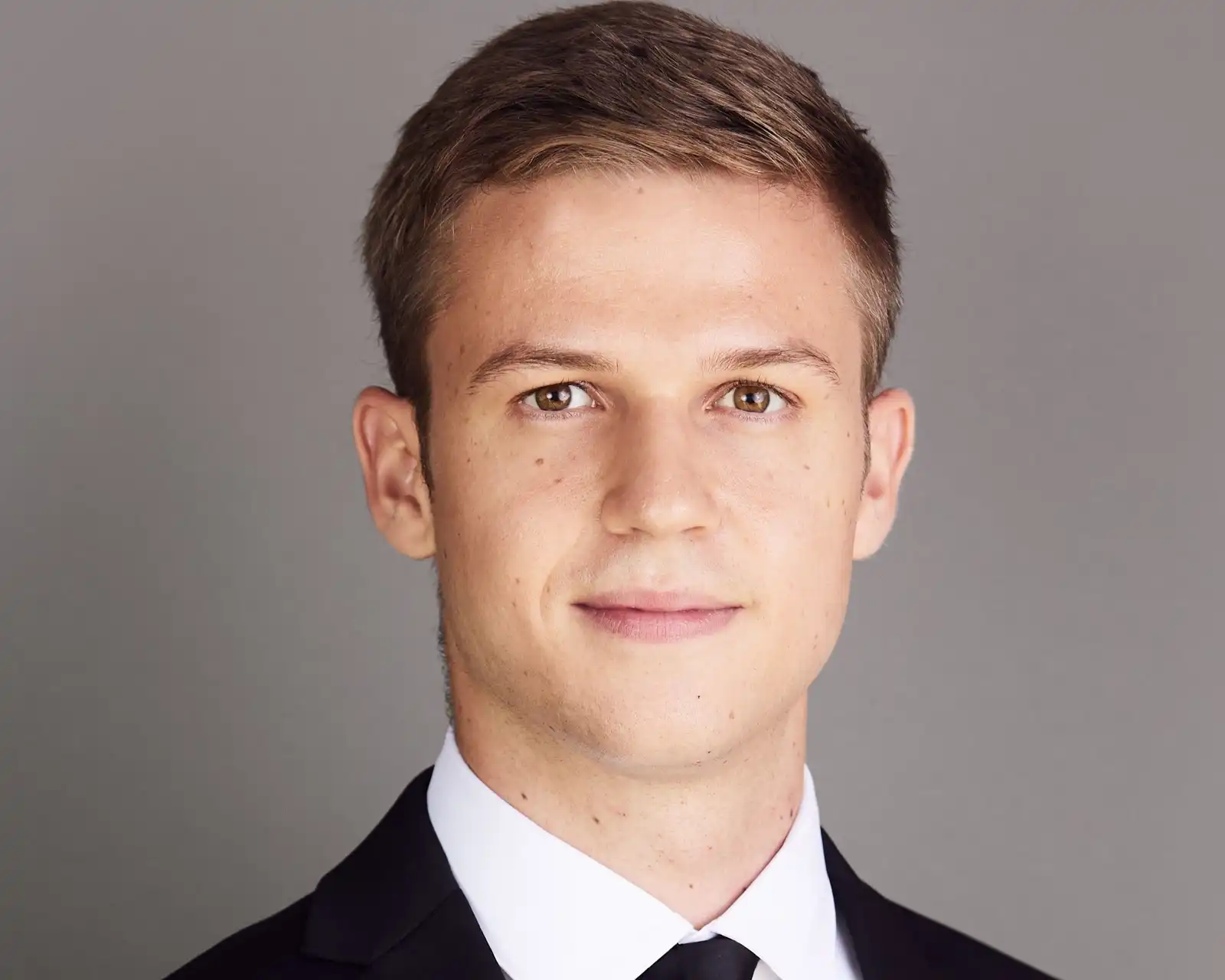Home>Maximilian, Senior Associate at PwC Strategy&
29.04.2025
Maximilian, Senior Associate at PwC Strategy&

Maximilian Graetz has graduated from the Master in International Development, choosing the Master’s thesis track. His thesis explored the effects of the COVID-19 pandemic on child marriage among Syrian refugees in Lebanon. Since graduating, he has been working at the international strategy consultancy PwC Strategy& based in Frankfurt, where he currently holds the position of Senior Associate.
What are your main responsibilities?
I work on national and international public sector projects, mainly in the security sector. Most of our clients are German government bodies, but we also work with European and Middle Eastern institutions. Our role is to support clients on a wide range of strategic challenges — from improving the efficiency of European defense programs and preparing for geopolitical risks to transforming public agencies to improve how they deliver services to the public. Projects usually last a few months, and I work in a team of consultants on different topics depending on the project. On a typical day, that might mean conducting in-depth research, developing quantitative models, preparing client workshops, or drafting detailed reports. No two projects are the same, and the ability to think critically, communicate clearly, and adapt quickly is essential.
How did you prepare for this job?
Before joining full-time, I had already gained experience through an internship and as a working student in consulting. At Sciences Po, I was involved with Junior Consulting Sciences Po, which gave me a chance to connect with peers who shared similar interests. That combination of practical experience and early exposure to consulting helped me navigate the recruiting process at PwC Strategy&.
What is the most fascinating part of your job?
Each project comes with a different topic and setup. It’s not unusual for the subject to be unfamiliar at first — for example, a policy area you haven’t worked on before. The process typically involves getting into the material, discussing approaches as a team, and gradually developing a result that works for the client. We work closely with the client throughout: clarifying questions, testing ideas, and refining our approach together. I’ve often seen this kind of collaboration help solve urgent client problems or support important decisions — and it’s rewarding to see that it can have real impact. Then the next project begins, often in a completely different area — which keeps the work interesting over time.
How did your PSIA experience contribute to the position you hold today?
In many ways, it feels like I never really left PSIA. I still work closely with a team of smart, highly motivated peers to tackle complex problems — now for clients instead of coursework. As before, we’re guided by experienced mentors who provide valuable feedback. Every few months brings a new challenge, new topics to juggle, tight deadlines, and the familiar rhythm of presenting results and hoping they resonate. PSIA may not be the most typical path into consulting, but the mix of academic rigor, international exposure, and practical training prepared me well.
What advice would you give to current students?
Make the most of your time at Sciences Po — it goes by quickly. The university offers much more than just courses: language classes, student associations, guest lectures, and chances to connect with people from all over the world. Take the time to explore what interests you, even if it doesn’t lead anywhere right away. You won’t always have this kind of freedom.
Information Sessions: Masters

Find out more about the Masters programs and the wide choice of specialisations offered by the 8 Schools of Sciences Po during our webinars dedicated to applicants.